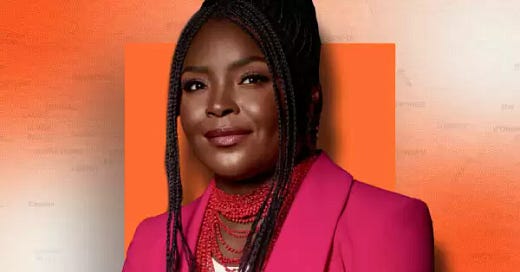Why Africa is poor, why it matters, and what to do about it.
Q&A with Magatte Wade, author of The Heart of a Cheetah.
Did you know the United Nations projects that 25 percent of the world's population will reside in Africa by the year 2050? It’s not just the planet's youngest continent but also its poorest. Understanding and addressing the causes of persistent poverty decades after decolonization is essential not just to helping Africans but to improving the future for all of us.
For Reason, I recently spoke with the Senegalese-born serial entrepreneur Magatte Wade, who also heads up the Atlas Network's Center for African Prosperity and has just published the amazing memoir cum manifesto, The Heart of a Cheetah: How We Have Been Lied To about African Poverty, and What That Means for Human Flourishing.
Through a mix of autobiography, history, and hard-core policy discussion, Magatte lays out a persuasive and detailed case that favors trade over aid and champions what her mentor, the Ghanian sociologist (and Reason contributor) George Ayittey, called the entrepreneurial "cheetah generation" over the bureaucratic "hippo generation." Magatte explains that the worst legacy of colonialism is not economic but psychological, manifesting often in a lack of confidence and a sense of dependency on the part of Africans. What's more, she points to the lingering effects of demonstrably failed Soviet-style economic thinking introduced during the Cold War as still structuring too much of daily life in Africa.
She makes a strident and powerful case against the World Bank, the IMF, the UN, and similar groups that spend most of their time hobnobbing amongst themselves while enriching kleptocrats who have no real interest in bettering all their citizens' lives. And she takes sharp aim at influential academics such as Columbia's Jeffrey Sachs and American politicians such as Elizabeth Warren, who consistently attack innovations such as Bitcoin and start-up cities (also known as charter cities), and new technologies that underwrite the sort of permissionless innovation that is remaking the world.
Magatte is also an advocate of what Whole Foods cofounder John Mackey, now heading up a wellness company called Love.Life, calls "conscious capitalism" and thus challenges free-market conservatives and libertarians every bit as much as neoliberal globalists and hard-left progressives. She's a deeply original thinker with a wide range of experiences (born in Africa, she grew up there and in Europe before moving to the United States for post-graduate education) that give her a unique perspective.
I highly recommend reading The Heart of a Cheetah. Below is video version of the 90-minute interview I did with Magatte. You can find an audio-only version at Reason or wherever you listen to podcasts.
Let me know what you think.



